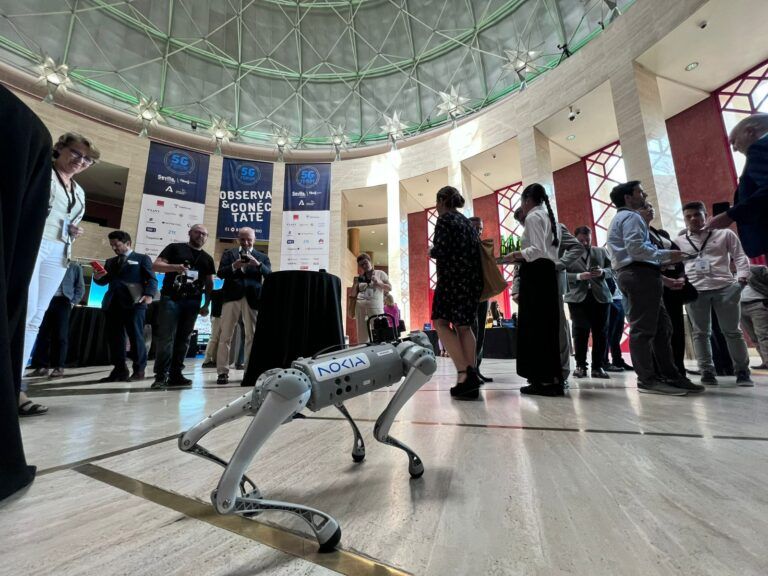
5G AS A SOLUTION FOR TOURISM, INDUSTRY AND SATELLITES AT THE PREMIERE OF THE ‘5G FORUM 23’
- Jaume Sanpera, CEO and Co-Founder of Sateliot, has delved into the ambitious space project with 5G: “It is a global revolution that can solve the problems of the Earth”.
- The Seville City Council has highlighted the influence of new technologies in the city’s tourism: “We use sensors and smart grids to control the tourist flow”.
- A mascot-robot called Perkins, intelligent supercars from Tesla or VR experiences such as ‘Volcano’, have brought the revolutionary proposals of the big companies in the ‘demo zone’ of the event.
After the morning session, this first day of the ‘5G Forum 23′ continued with a high profile for more reference companies such as Sateliot, Minsait, Ericsson and Netmetrix. Monday’s session was closed by the city of Seville with a panel explaining the application of new technologies to tourism.
The demonstrations area has continued to be one of the great attractions for the attendees since, among others, they have met thanks to Nokia a pet-robot called Perkins; they have been able to play a virtual tennis match with VR glasses by Orange or have been able to feel an immersive experience in the Metaverse, by SpainClick and Telefónica. Participants were also able to see how the robotic arm of the company Minsait works. Not to mention the closed driving circuit to get behind the wheel of Tesla’s intelligent supercars.
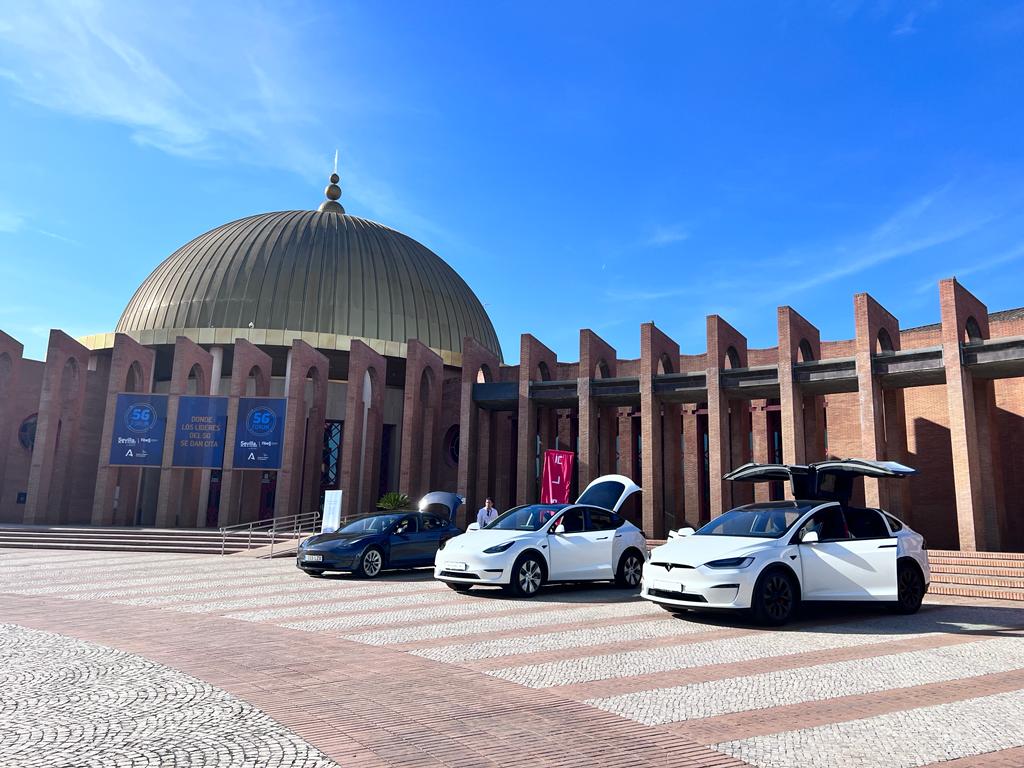
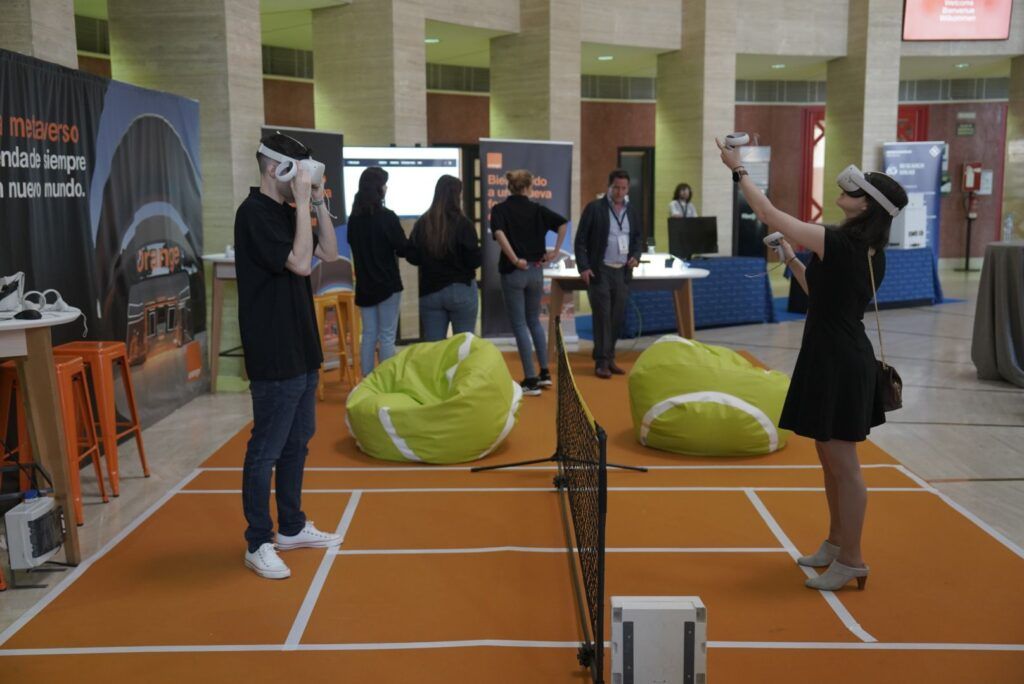
Seville bets on 5G to boost tourism
The City Council of Seville, capital of smart tourism, has delved into the importance of new technologies for tourism with ‘The union of technologies for the management of tourist flows’, exposing a pioneering project in the Barrio de Santa Cruz. “The objective is to reduce the tourist density in this area and propose actions in this regard,” said Antonio Jiménez, CEO of Sevilla City Office. To this end, Federico Rollán, head of the Smart Tourism Office, has indicated that they have placed “ten sensors in the neighborhood that respect privacy to control the flow”.
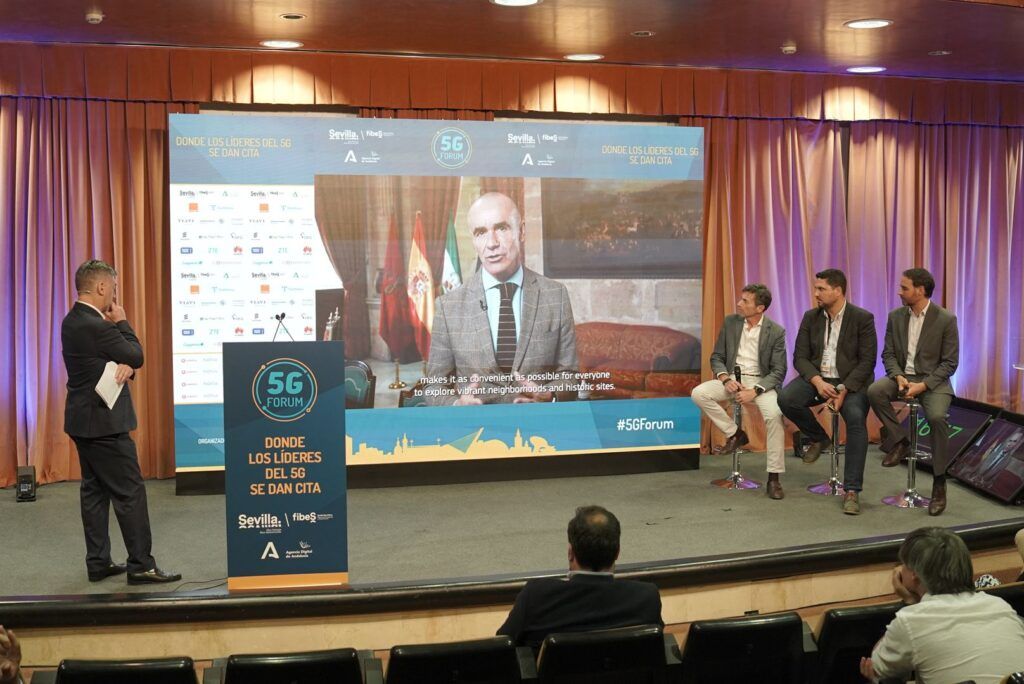
Finally, José Ayub, Co-Founder & CEO of Galgus, pointed out that they use “smart networks developed and patented by the company, which do not require a wifi connection from people to recognize a device, allowing them to count individuals without tourists or residents being connected”.
Sateliot, pioneer in combining 5G and satellite launching
One of the most anticipated moments was the intervention of Jaume Sanpera, CEO and Co-Founder of Sateliot, as he provided details of the first Spanish satellites launched to provide 5G technology globally: “We are launching from our country satellites that allow connecting 5G IoT devices from space for the first time. And we already have two.”
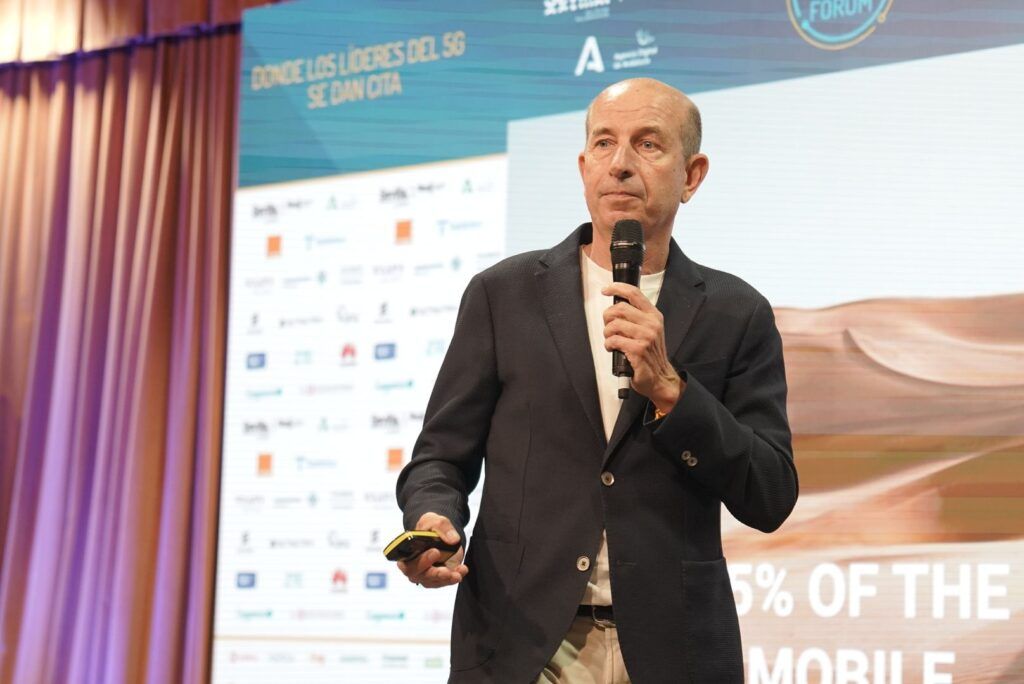
“With the four satellites that we are going to launch this year, the first satellite constellation will be formed that will allow us to already provide 5G solutions before we have to send more satellites. We want to reach a total of 256 satellites by 2025. This is a global revolution that goes beyond business. It has to be part of the solution to connectivity problems all over the Earth.”
Next, the Spanish company Minsait presented industrial use cases: ‘Data and AI as Drivers for this Technology’. “Generative AI increases network capabilities and helps the implementation of 5G as a tool. In three years, more than 40% of companies will combine AI and 5G, because together they will generate much more value in sectors such as transport, energy or health,” said Daniel García Manteiga, Director of Products and Business Development for Telco and Media. Francisco Donato, Director of Infrastructure Operation (Phygital), presented a series of revolutionary projects such as Avi-iot, Avi-Fauna and Smart Worker, and defined what Phygital is: “It is the area of Minsait that combines the physical and digital worlds to make end-to-end solutions a reality”.
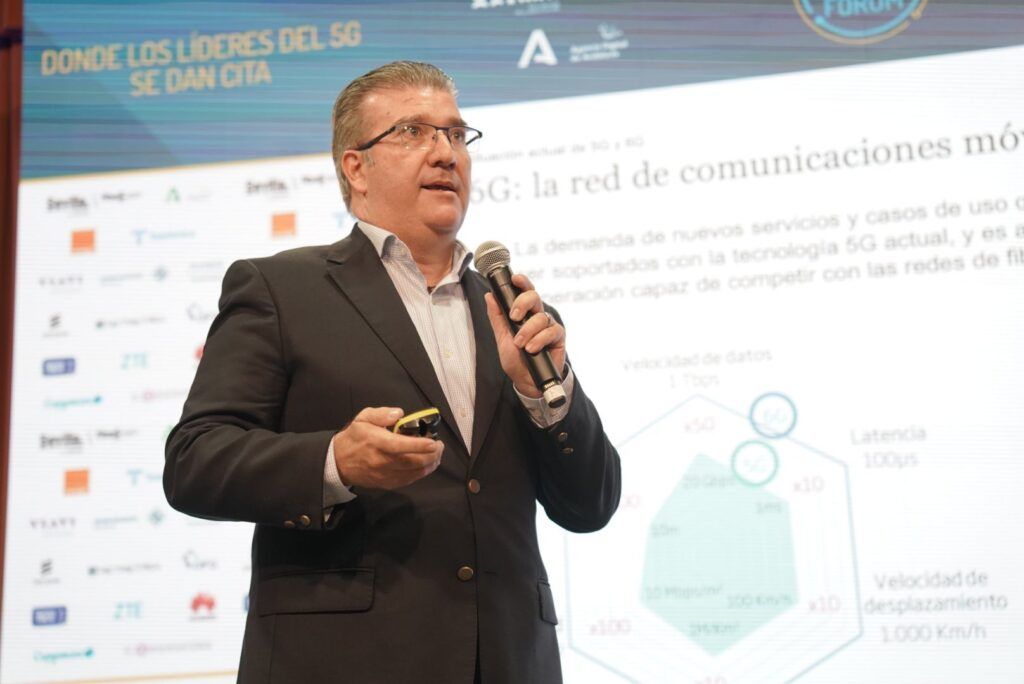
Very interesting has been ”The Shift towards more sustainable networks “, with the speaker Noelia Lopez, Sustainability & AI Marketing Driver of the Swedish company Ericsson. “5G is the most energy efficient technology. The same volume of data can be transmitted in less time and with less signaling. We try to reduce the total consumption, to make the networks more sustainable.”
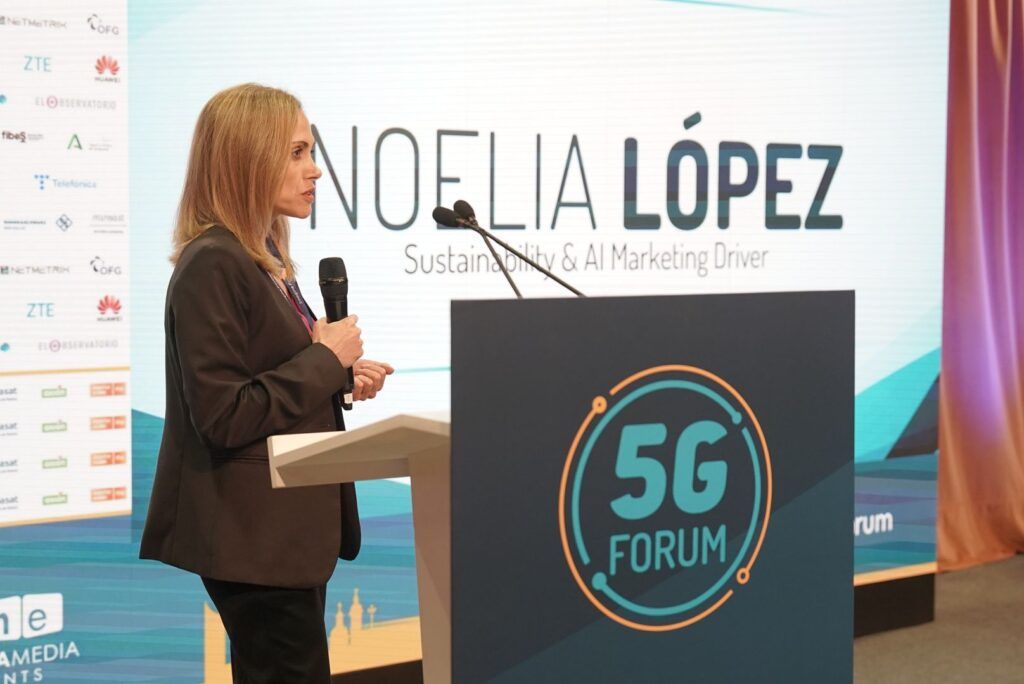
The Spanish company Netmetrix participated with ‘The importance of testing in 5G’, in which its Managing Director, Pablo Álvarez, detailed the particularities of 5G when it comes to testing it. “These networks are very complex and make testing much more important than in other technologies. The network has been split, before each operator had 2 or 3 manufacturers and now there are 10 and 15, each with its own software development. Hence the importance of 5G testing”, he pointed out.
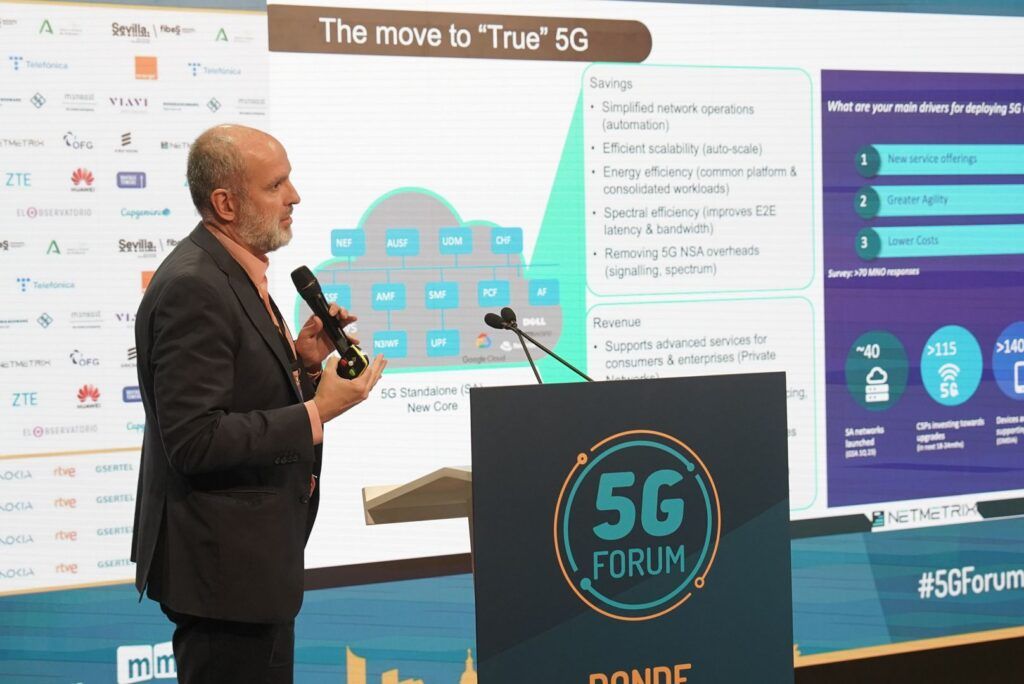
The first day of the ‘5G Forum 23’ concluded with the ‘Happy Hours Networking’ as the culmination of an inaugural session that has been a real success in terms of participation and presence of personalities and technology companies. This Tuesday, May 9th, the second and last session will take place at FIBES with a top-level line-up.
The ‘5G Forum 23’, “Where 5G leaders meet” is promoted by Sevilla City Office and Fibes, and has the support of Junta de Andalucía and the Digital Agency of Andalusia, as well as Orange, Telefónica, Viavi Solutions, Ericsson, Capgemini, Rohde & Schwarz, Minsait, Netmetrix, OFG, ZTE, Huawei, Vantage Towers, Vodafone, Nokia, Gsertel, Hispasat, Axión and Impulsa Visión RTVE, among others.